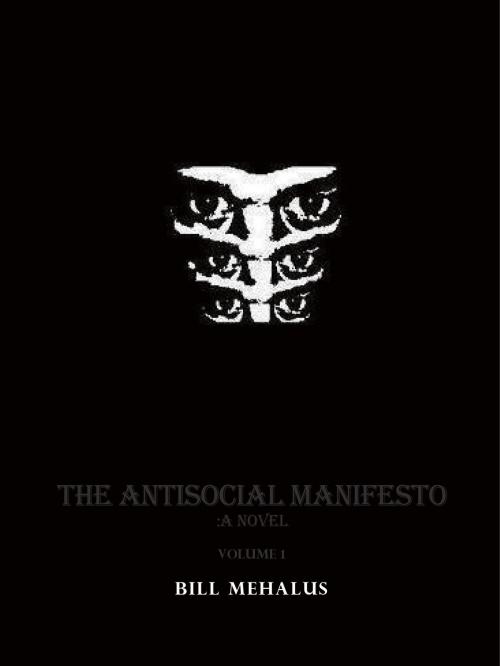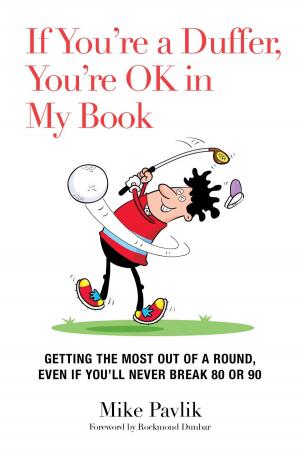| Author: | Bill Mehalus | ISBN: | 9781301573912 |
| Publisher: | Bill Mehalus | Publication: | February 28, 2013 |
| Imprint: | Smashwords Edition | Language: | English |
| Author: | Bill Mehalus |
| ISBN: | 9781301573912 |
| Publisher: | Bill Mehalus |
| Publication: | February 28, 2013 |
| Imprint: | Smashwords Edition |
| Language: | English |
The author of an expansive memoir, The Antisocial Manifesto, wants the world to know all about him, and yet he chooses to remain anonymous—which paradoxically frees him to speak personally about his experience with mental illness. Part radical philosophy, part psychological
excavation, the book is a collection of six volumes that documents the author’s life from before birth to his midlife diagnosis with antisocial personality disorder, a mental health condition characterized by a persistent pattern of manipulating, exploiting, or violating the rights of others.
In The Antisocial Manifesto, readers find many familiar elements of memoir—childhood trauma, troubled teen years, and some serious mistakes in early adulthood—but, in the author’s case, these experiences escalate into out-of-control behavior that lasts well into midlife.
Symptoms of antisocial personality disorder include criminal behavior, drug abuse, and aggression. The author experiences all of these and displays a lack of guilt or remorse, which is also a common feature of this difficult-to-treat disorder. Violent episodes, such as when he runs over a person with his car, are reported but not necessarily regretted, again demonstrating the
validity of the author’s diagnosis.
At turns academic, witty, angry, and profane, the author shares not only the details of a violence-filled childhood, but also his innermost thoughts. His detached perspective may be unsettling to readers at times, but this look into his mind helps to explain the rough road he has traveled. While illuminating, such details can also be overdone, and the author’s extended examinations of his many ideas can become overwhelming.
Context for the autobiographical details is provided at the head of each chapter, where the author has collected news headlines from the year under consideration along with a provocative tally of human population growth. Also unnerving are the author’s photographs, which run the expected time line from his own baby pictures to those of his children. These, however, are not Kodak moments. In a compelling illustration of his psychological detachment, the author has blacked out his own eyes in every picture.
Intrepid readers will venture beyond the biographical explorations and into philosophical arguments against religion and in favor of science, all supported by complex, logical arguments. The author provides plentiful documentation for his overarching “anti-theist” position and demonstrates his intelligence, knowledge, and persuasive powers with each new argument—for
those willing to follow every tangent and overlook the occasional typographical error.
The intriguing question posed by this book is whether the author has been appropriately labeled with a mental illness when, in fact, he is really a radically creative thinker who chooses to go against the grain of society’s moral codes. There is a good case made for both explanations, which is what keeps The Antisocial Manifesto interesting.
The author of an expansive memoir, The Antisocial Manifesto, wants the world to know all about him, and yet he chooses to remain anonymous—which paradoxically frees him to speak personally about his experience with mental illness. Part radical philosophy, part psychological
excavation, the book is a collection of six volumes that documents the author’s life from before birth to his midlife diagnosis with antisocial personality disorder, a mental health condition characterized by a persistent pattern of manipulating, exploiting, or violating the rights of others.
In The Antisocial Manifesto, readers find many familiar elements of memoir—childhood trauma, troubled teen years, and some serious mistakes in early adulthood—but, in the author’s case, these experiences escalate into out-of-control behavior that lasts well into midlife.
Symptoms of antisocial personality disorder include criminal behavior, drug abuse, and aggression. The author experiences all of these and displays a lack of guilt or remorse, which is also a common feature of this difficult-to-treat disorder. Violent episodes, such as when he runs over a person with his car, are reported but not necessarily regretted, again demonstrating the
validity of the author’s diagnosis.
At turns academic, witty, angry, and profane, the author shares not only the details of a violence-filled childhood, but also his innermost thoughts. His detached perspective may be unsettling to readers at times, but this look into his mind helps to explain the rough road he has traveled. While illuminating, such details can also be overdone, and the author’s extended examinations of his many ideas can become overwhelming.
Context for the autobiographical details is provided at the head of each chapter, where the author has collected news headlines from the year under consideration along with a provocative tally of human population growth. Also unnerving are the author’s photographs, which run the expected time line from his own baby pictures to those of his children. These, however, are not Kodak moments. In a compelling illustration of his psychological detachment, the author has blacked out his own eyes in every picture.
Intrepid readers will venture beyond the biographical explorations and into philosophical arguments against religion and in favor of science, all supported by complex, logical arguments. The author provides plentiful documentation for his overarching “anti-theist” position and demonstrates his intelligence, knowledge, and persuasive powers with each new argument—for
those willing to follow every tangent and overlook the occasional typographical error.
The intriguing question posed by this book is whether the author has been appropriately labeled with a mental illness when, in fact, he is really a radically creative thinker who chooses to go against the grain of society’s moral codes. There is a good case made for both explanations, which is what keeps The Antisocial Manifesto interesting.















